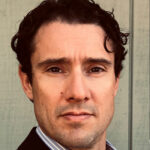8:45 am
Opening Remarks
9:00 am
AI Applications in Catastrophes: Risks and Rewards
The acceleration of artificial intelligence (AI) and machine learning (ML) technologies and their applications are revolutionizing industries from transportation to healthcare, developing breakthroughs that are changing our daily lives and human-machine interactions. Changes in weather patterns, oceans, sea level rise, and catastrophic risk amplify the need for accelerated AI research and transition to practical use for decision-making to prepare, mitigate, and build resilience before, during, and after disasters. As recent studies have concluded (Sun et al, 2020), applications of artificial intelligence for disaster management have faced challenges, from data quality to data availability to train models, biases, or AI that has performed well in research environments yet fails in at-scale production environments. In addition, access to high performance computing (HPC) and infrastructure able to handle massive volumes and velocities of data can be cost prohibitive especially for local jurisdictions with limited budgets. The advancement of HPC in the cloud, marked reduction on hardware, and open source technologies are breaking down barriers and unleashing an AI revolution that disaster managers must harness to save lives, reduce catastrophic risk, and build resilient communities. In this keynote, our speaker will discuss the risks and rewards of AI for catastrophes and highlight the bright future ahead for our industry.
9:45 am
Break
10:00 am
The Future of Flooding: Mapping Risk for a Changing Planet
Flooding is a top (re)insurance CAT-driver worldwide, and Canada is no exception to that rule. Set against the canvas of a changing climate, understanding the risk posed by all types of flooding events is a more formidable challenge than ever before. And yet, that understanding remains key to planning a resilient future for Canada’s communities. This panel features experts from public and private sector agencies working to tackle this problem, leveraging the latest mapping and modelling technology in Canada and abroad.

Speaker
Robin Bourke
Engineering Advisor
Public Safety Canada

Speaker
Andrew Smith
Chief Operations Officer
Fathom

Speaker
Caleb White
Managing Partner
Climate Engine
11:00 am
InsurTech Presentation
11:10 am
Break
11:25 am
InsurTech Presentation
11:35 am
New Perspectives on Earthquake Risk in Canada
Canada has a history of destructive earthquakes, but there remains significant uncertainty regarding the likelihood and impact of future events. In addition, risks are increasing in urban areas due to increases in population and built infrastructure. At the same time, NRCan has just released the new 2020 National Seismic Hazard Model for Canada, which indicates significantly higher levels of ground shaking hazard in several major urban areas relative to the 2015 hazard map, and is nearing the completion of the first public national earthquake risk model.
This panel will provide insights into the development of these new models, how they may influence risk models for the insurance sector, and the implications of new models for a broad range of risk management or disaster reduction applications. The panel will also discuss the importance of open data, transparency in model development, and the benefits of international collaboration.

Speaker
Tiegan Hobbs
Research Scientist
Natural Resources Canada

Speaker
Murray Journeay
Research Scientist
Natural Resources Canada

Speaker
Michal Kolaj
Research Scientist
Natural Resources Canada

Speaker
Adam Podlaha
Head
Aon Impact Forecasting

Speaker
Goran Trendafiloski
Head of Earthquake Model Development (EMEA, APAC, Canada)
Aon Impact Forecasting
12:35 pm
InsurTech Presentation
12:45 pm
Break
1:15 pm
InsurTech Presentation
1:25 pm
Wildfire Science & Management: Modelling Update
Despite activity in Canada in 2020 falling below recent averages, wildfire remains a significant concern within the (re)insurance industry. The heightened wildfire activity of the past several years has corresponded with an acceleration in our knowledge and abilities regarding wildfire risk quantification, structural and community resiliency, and loss modeling capabilities.
In this session we will hear from several experts discussing their work that has advanced our understanding of wildfire and helped bring clarity and quantification to a chaotic peril. Empowered with a greater understanding of wildfire as a catastrophic peril the (re)insurance industry will be able to proceed into the 2020s with the confidence to make informed risk management decisions and develop resiliency strategies to diminish future potential losses.

Speaker
Jen Beverly
Assistant Professor, Wildland Fire
University of Alberta

Speaker
Dave Jones
Senior Director
The Nature Conservancy

Speaker
Michael Young
Vice President, Model Product Management
RMS
2:30 pm
Closing Remarks
Thank You To Our Sponsors







